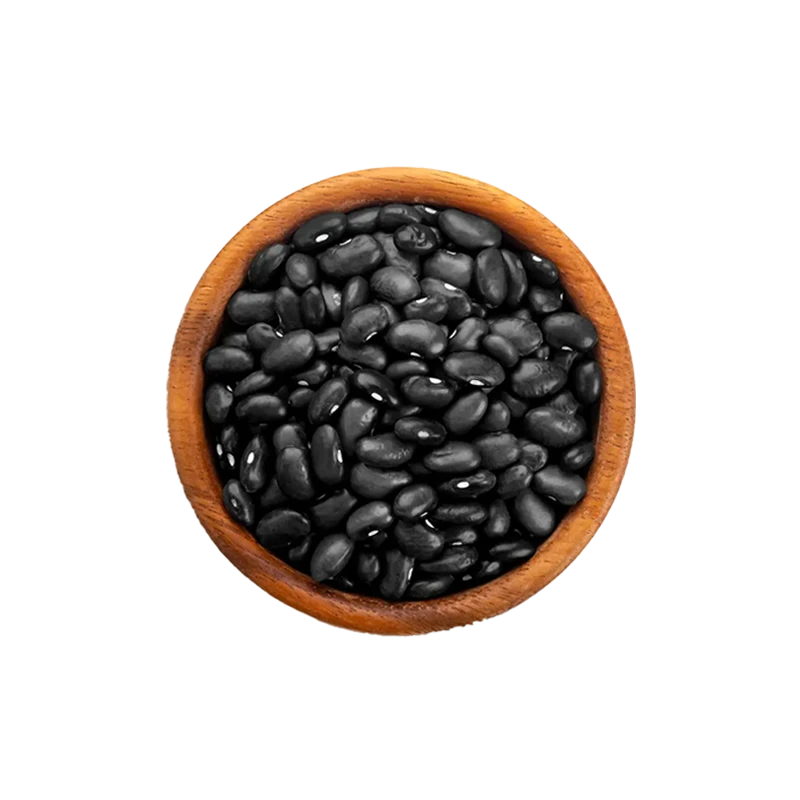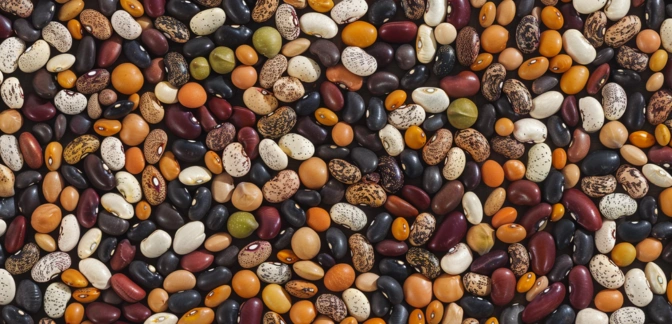Black Beans — Nutrients, Health Benefits, And Shopping Tips

Written by Listonic Team
Last update on September 4, 2024
Nutrients
Nutrition facts
Amount per 100 g
Calories
🔥 339 kcal
| Nutrition per: 100 g | Value | % Daily Value* |
|---|---|---|
| Carbs | 63 g | 22.91% |
| Fiber | 16 g | 57.14% |
| Sugars | 2 g | 4% |
| Glycemic Index | 30 | - |
| Protein | 21 g | 42% |
| Sodium | 5 mg | 0.22% |
| Total Fat | 1 g | 1.28% |
*The % of Daily Value (DV) tells you how much a nutrient in a serving of food contributes to a daily diet. 2,000 calories a day is used for general nutrition advice.
21 g
💪 High Protein Content
16 g
✅ High Fiber Content
Key takeaways
Health benefits
- Rich in fiber, which supports digestive health, helps maintain regular bowel movements, and promotes a healthy gut microbiome.
- High in protein, making them an excellent plant-based protein source for muscle growth and repair.
- Supports heart health by lowering cholesterol levels and providing essential nutrients like folate and magnesium.
- Contains essential vitamins and minerals such as iron, potassium, and B vitamins, which are important for overall health and well-being.
Health risks
- Digestive discomfort such as bloating, gas, or diarrhea due to the high fiber content and certain carbohydrates in black beans.
- Phytic acid content which can inhibit the absorption of certain minerals, potentially leading to deficiencies if beans are a large part of the diet.
- Allergic reactions in some individuals, particularly those with legume allergies, causing symptoms like itching, swelling, or difficulty breathing.
- Risk of contamination with harmful bacteria if not properly cooked, as some types of beans can be toxic when raw or undercooked.
How to choose black beans
Black beans best for cooking are shiny and uniform in size, which promotes even cooking. The beans should be whole, without splits or cracks, to preserve their texture upon cooking.
Disregard black beans that appear dull or coated with a powdery residue, signals that they are aged and could require longer cooking times. Also avoid any packages that are damaged or show signs of insect presence.

How to store black beans
Dried black beans should be stored in an airtight container in a cool, dry place. A pantry or kitchen cabinet is ideal to keep them free from moisture and pests. Properly stored dried black beans can last up to a year.
Moisture and pests are the main concerns for dried beans, so avoid these conditions. Storing black beans near strong-smelling foods can cause them to absorb unwanted odors. Regularly checking for pests helps maintain their quality and safety.
✅ Extra Tip
How long do they last?
Black beans, if dried, can last for 1-2 years when stored in an airtight container in a cool, dark place. Cooked black beans should be refrigerated and consumed within 3-5 days. For longer storage, cooked black beans can be frozen for up to 6 months.
What to do with leftovers?
Leftover black beans are incredibly versatile and can be used in many dishes. Add them to tacos, burritos, or quesadillas for a protein-packed filling, or mix them into soups and stews for extra heartiness.
Use black beans in salads for added texture and nutrition, or blend them into a bean dip or hummus for a delicious snack. They can also be mashed and used as a base for veggie burgers or mixed into a grain bowl with vegetables and a tangy dressing. If you have a lot of black beans, consider making a batch of black bean chili or using them in a black bean and rice casserole. Black beans are also great in salsas or mixed into a corn salad for a fresh and vibrant side dish.
👨⚕️️ Medical disclaimer
Discover products from other categories
Listonic Team
Fact-checked
Our editorial team checked this article to make sure it was accurate at the time of publishing it.
Get the top-rated shopping list app on your phone!







